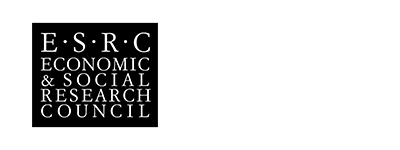Authored by Sarah Bell
On 1st November this year, I held a ‘Sensing Nature’ workshop at the Annual Visionary Conference, providing a great opportunity to share some of this project’s early findings.
Visionary is a membership organisation for local sight loss charities, established with the aim of ensuring that people living with sight impairment can access the services they need at a local level.
Each year, Visionary holds a conference to bring these organisations together, to provide networking and learning opportunities, and showcase their activities and achievements.
The theme of this year’s conference was ‘Unlocking Potential, Creating Value’. Particularly inspiring opening presentations were given by Keith Valentine, Vision UK Chief Executive Officer, and Eleanor Southwood, incoming RNIB Chair. They called for a transformational agenda to give blind and partially sighted citizens a better deal from the voluntary sector; an agenda driven by genuine collaboration, inclusivity, passion and purpose.
The conference included a whole range of interactive workshops, spanning sessions focused on technology, laughter wellness, sport, and Charles Bonnet Syndrome, through to data protection, finances, effective lobbying, and approaches for measuring rehabilitation impacts and outcomes.
In line with the conference theme, the aim of our Sensing Nature workshop was to explore how we could unlock the wellbeing potential of nature. We were keen to think about this in the context of life with sight impairment, recognising the vast spectrum of sight impairments that different people can experience.
A brilliant mix of charity representatives from around the country participated in the workshop, making it a really valuable opportunity to share some of the early findings emerging from the Sensing Nature project. We discussed the varied wellbeing benefits of interacting with nature but also some of the challenges of doing so, and the importance of local collaborations in supporting this.
Several of the workshop participants had or were keen to establish walking groups in their local areas, whilst others discussed the pleasures involved in other activities, such as fishing, gardening, tandem cycling, and even bringing features of nature indoors as part of art-based activities and initiatives. We discussed the value of both sitting in nature but also being able to move through it, to gain a sense of freedom, connection and achievement.
Others recognised that even opportunities to pause and tune into nature on the doorstep can be important, although this is not always easy when masked by features demanding more immediate attention, such as cars, pedestrians, cyclists, or more ‘intrusive’ nature like overgrown hedgerows or low hanging tree branches.
Challenges noted by participants included the logistics of getting out to suitable nature walks, and transporting necessary equipment to activity locations, such as tandem bikes. Finding, training and retaining volunteers was identified as absolutely essential, and there were questions raised as to whether Visionary could play a role in supporting the long-term training of volunteer guides in some way. This could be through, for example, ‘train the trainer’ courses, that aim to give people the skills and confidence to then train walk volunteers as sighted guides.
We also discussed the importance of building relationships with people to fully understand their specific priorities and interests while out in nature. There was a sense that people need to be given sufficient time and appropriate support to re-familiarise themselves with different nature settings following significant changes in sight, and to build the confidence and skills to reconnect and enjoy such experiences again on their own terms.
This conference highlighted why it is so important that we go that bit further in promoting opportunities for genuinely inclusive, multisensory nature experiences regardless of one’s life circumstances. We’ll be talking much more about many of these themes and others through the next year, so do keep checking the Sensing Nature website to find out more.



